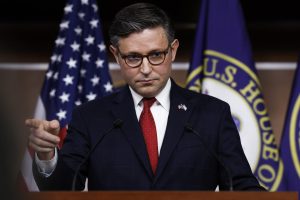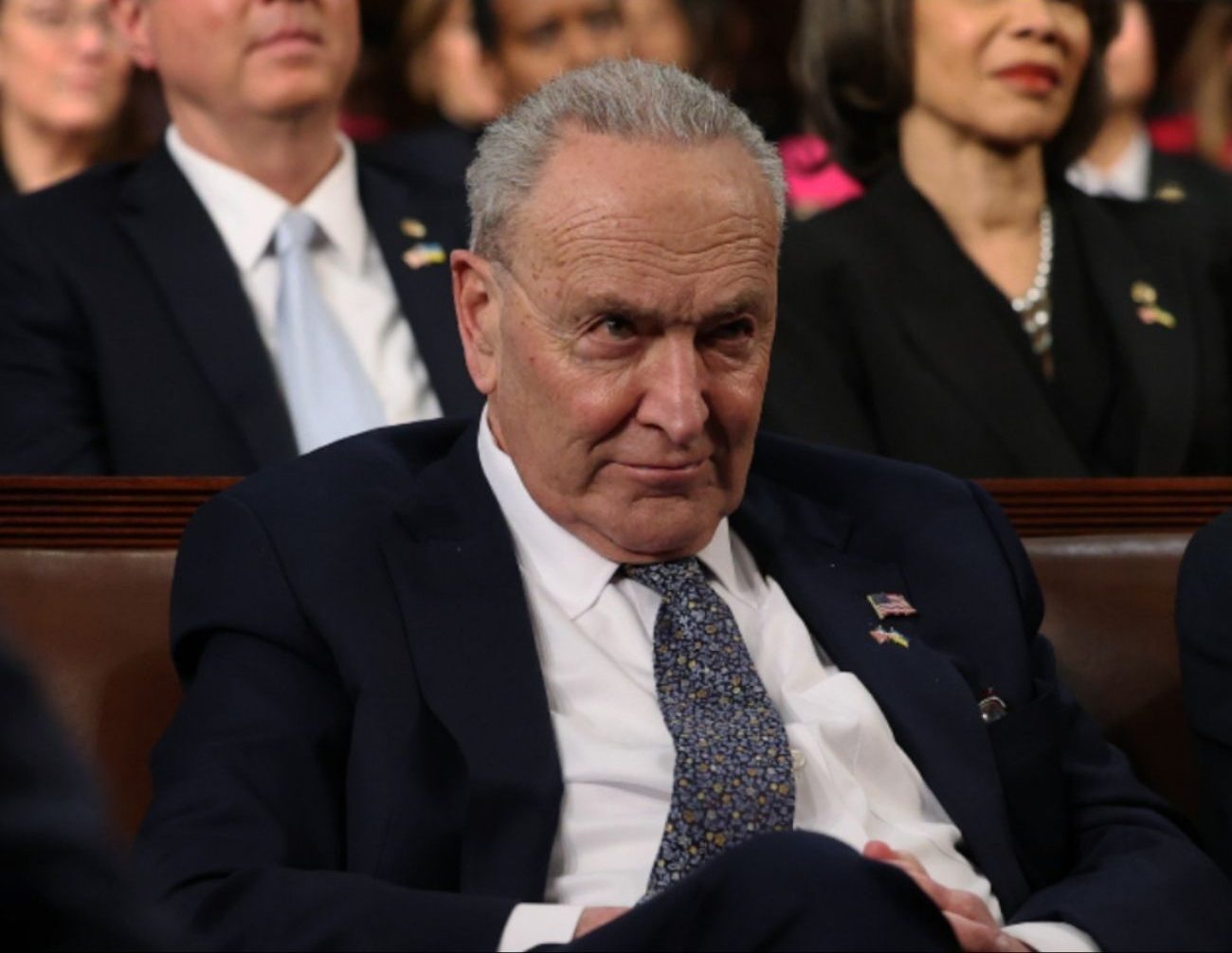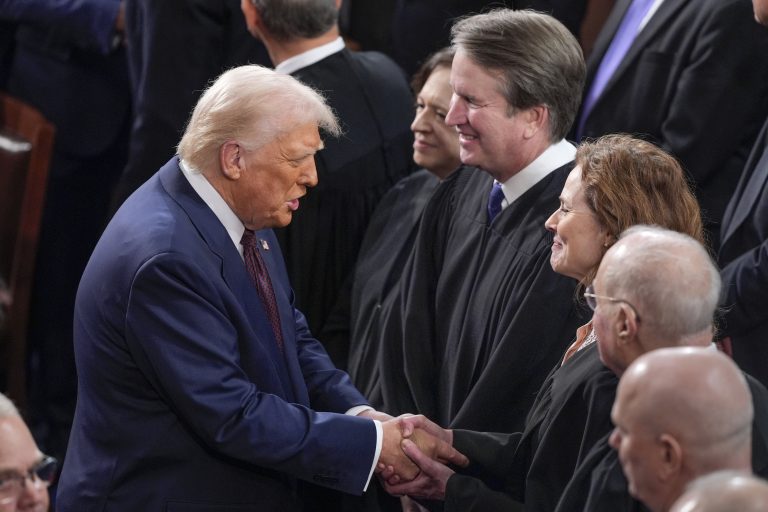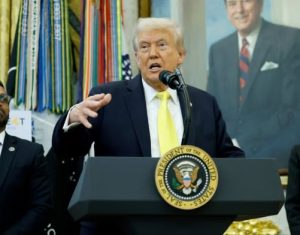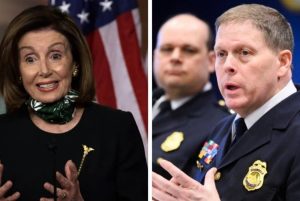Washington, D.C. — Senate Minority Leader Chuck Schumer (D-N.Y.) is facing deepening divisions within his own party as Democrats clash over how to handle the ongoing government shutdown and budget negotiations, according to multiple congressional sources.
What began as a disagreement over timing and tactics has now escalated into what one lawmaker privately described as an “open mutiny,” exposing sharp ideological rifts between establishment Democrats and the party’s progressive wing.
Conflicting Messages and Political Whiplash
According to Axios, Schumer privately floated the idea of passing a short-term stopgap measure to keep the government open for seven to ten days while negotiations continued. Such a move would have bought time for talks with Republicans and the White House on issues including the renewal of Obamacare subsidies and other Democratic priorities.
However, when asked about that very idea at a press conference on Monday, Schumer publicly rejected it. The contradiction did not go unnoticed by members of his caucus.
“I’m not sure why grandpa is doing this,” one frustrated House Democrat told Axios on condition of anonymity. “It just shows how out of touch he is with where the American people are at.”
That sentiment captures a growing impatience among progressive Democrats, who argue that party leadership has failed to take a firm stand in negotiations and risks alienating younger, more activist voters.
A Familiar Dilemma for Schumer
This is not the first time Schumer has faced internal backlash over government funding disputes. Back in March, he urged Democrats to vote in favor of a continuing resolution to avoid a shutdown, arguing that it was the responsible course.
“I believe it is my job to make the best choice for the country, to minimize the harm to the American people,” Schumer said on the Senate floor at the time. “Therefore, I will vote to keep the government open and not shut it down.”
But after months of mounting criticism — including speculation that Rep. Alexandria Ocasio-Cortez (D-N.Y.) might challenge him in a future Senate primary — Schumer’s position has become far more precarious. His attempts to strike a balance between pragmatism and party unity are proving increasingly difficult.
Shutdown Stalemate Deepens
The federal government has remained partially closed for several days as lawmakers fail to reach an agreement on a spending package.
The Republican-led House passed a short-term continuing resolution last week to temporarily fund the government. But the measure has stalled in the Senate, where Democrats are insisting on additional provisions related to health care subsidies and social spending.
Meanwhile, the White House has warned that without congressional action, federal agencies may soon be forced to begin mass layoffs.
“Federal agencies are preparing for widespread furloughs if Democrats continue to block a stopgap spending bill,” said Press Secretary Karoline Leavitt.
The administration insists the shutdown cannot continue without major spending reforms. Democrats, led by Schumer, have countered that the GOP proposal would underfund key domestic programs.
Trump Administration’s Response
In an effort to mitigate some of the fallout, President Donald Trump has directed the Pentagon to reallocate funds to ensure that military service members continue receiving their paychecks, even as other government functions remain suspended.
That move helped defuse one of the most politically sensitive aspects of the shutdown. However, staffers on Capitol Hill — including Senate employees — remain in limbo, with another payday approaching and no resolution in sight.
Healthcare Subsidies at the Center of the Dispute
A major sticking point remains the question of whether to extend Affordable Care Act (ACA) subsidies, which are set to expire ahead of the November 1 open enrollment period.
Democrats warn that failing to act would result in steep premium hikes for millions of Americans. Republicans have so far refused to include the subsidy extensions in the current bill, saying those issues should be debated separately once the government is reopened.
Trump has remained firm on his stance, calling Democrats’ demands a “non-starter” and accusing them of trying to undo $1.5 trillion in spending cuts enacted earlier in his term.
Fractures Within the Democratic Caucus
Despite Schumer’s efforts to keep the caucus unified, some Senate Democrats have begun breaking ranks.
Sens. Catherine Cortez Masto (D-Nev.) and Angus King (I-Maine) both voted in favor of the Republican-backed short-term funding bill. Sen. John Fetterman (D-Pa.), who has occasionally sided with Republicans on fiscal issues, skipped Tuesday’s vote but has previously supported similar measures.
Their decisions underscore the growing ideological divide between centrist and progressive Democrats — a split that could complicate Schumer’s leadership heading into next year’s legislative battles.
Public Frustration and Political Fallout
The American public, weary of repeated shutdown showdowns, appears increasingly frustrated with both parties. A recent survey from Gallup found that confidence in Congress remains near historic lows, with fewer than 20 percent of respondents expressing approval of the institution’s performance.
Political analysts suggest that while the immediate focus is on funding, the deeper issue for Democrats may be one of identity — whether the party should embrace a more combative, progressive stance or return to a pragmatic, deal-making approach.
“This isn’t just about policy differences,” said political analyst Dana Carvey. “It’s about control of the party’s direction — and who defines what it means to be a Democrat in the post-Biden era.”
The Road Ahead
As the standoff continues, the Senate is expected to revisit the House-passed continuing resolution multiple times this week. Majority Leader John Thune (R-S.D.) has said the chamber will “keep voting until the lights come back on.”
For Schumer, the challenge now extends beyond negotiating with Republicans — it’s about reasserting control over his own caucus before discontent within the party grows into a full-blown leadership crisis.
Despite the tension, the New York senator has downplayed talk of division.
“Democrats are united in fighting for working families,” Schumer said Tuesday. “We’re negotiating from a position of strength.”
Still, behind closed doors, some members appear to disagree — and with the government shutdown showing no signs of immediate resolution, the political temperature inside the Capitol continues to rise.

Emily Johnson is a critically acclaimed essayist and novelist known for her thought-provoking works centered on feminism, women’s rights, and modern relationships. Born and raised in Portland, Oregon, Emily grew up with a deep love of books, often spending her afternoons at her local library. She went on to study literature and gender studies at UCLA, where she became deeply involved in activism and began publishing essays in campus journals. Her debut essay collection, Voices Unbound, struck a chord with readers nationwide for its fearless exploration of gender dynamics, identity, and the challenges faced by women in contemporary society. Emily later transitioned into fiction, writing novels that balance compelling storytelling with social commentary. Her protagonists are often strong, multidimensional women navigating love, ambition, and the struggles of everyday life, making her a favorite among readers who crave authentic, relatable narratives. Critics praise her ability to merge personal intimacy with universal themes. Off the page, Emily is an advocate for women in publishing, leading workshops that encourage young female writers to embrace their voices. She lives in Seattle with her partner and two rescue cats, where she continues to write, teach, and inspire a new generation of storytellers.



